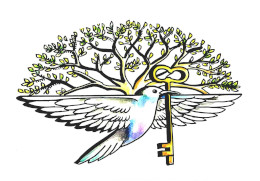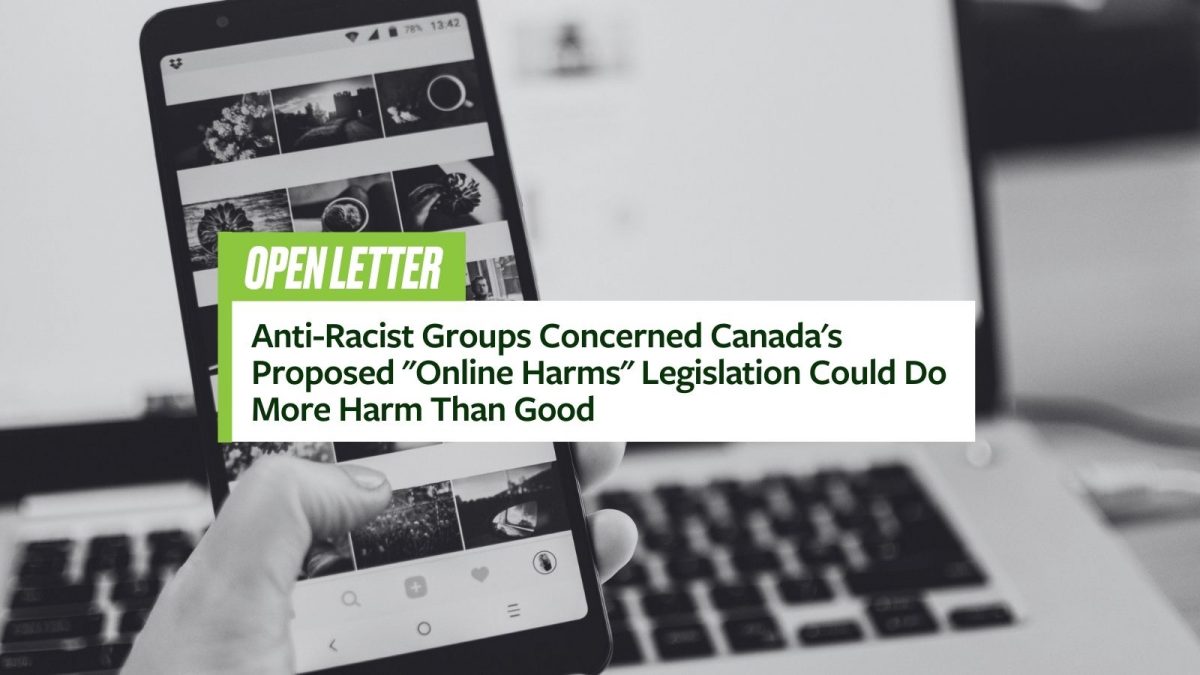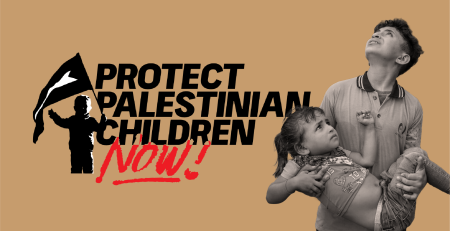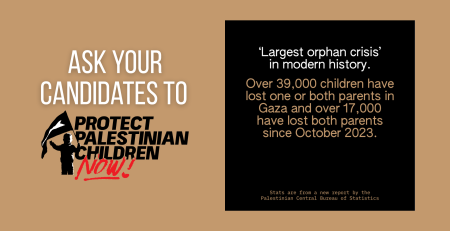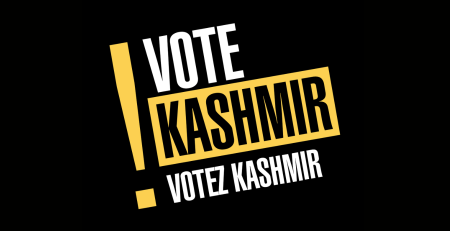Just Peace Advocates has joined with other organizations and individuals in this critical statement.
Subject: Joint submission re: Online harms legislation
To whom it may concern,
As organizations and individuals with expertise in anti-racism, we are profoundly concerned by the government’s proposed “online harms” legislation – purporting to address “terrorist content,” “content that incites violence,” “hate speech,” “non-consensual sharing of intimate images,” and “child sexual exploitation content.”
While the proposal is billed as protecting marginalized groups from “hate, harassment, and violent rhetoric online,” we fear that, as currently formulated, it risks exacerbating the existing, well-documented pattern of online speech policing and removal targeting Indigenous, Black, Palestinian, and other colonized and racialized communities.
Particular aspects of concern regarding the proposed legislative framework from an anti-racism perspective include:
- Incentivization of over-removal produced by: the short timeline for required response after content being flagged (24 hours); the obligation for online communication service providers (OCSPs) to take proactive measures to identify harmful content, including through use of automated systems (repeatedly shown susceptible to amplifying existing biases); vague definitions that will lead platforms to be over-inclusive in order to be “safe;” and significant financial penalties for non-compliance.
- Conflation of very different types of online harms – for example, “hateful” or “terrorist” content with “child sexual exploitation” or “non-consensual sharing of intimate images” – under a single regulatory regime. This is particularly problematic given the existing deployment of categories of “hate speech” and “terrorist speech” to censor Black and Palestinian content online; abetted, in the Palestinian case, by efforts to institutionalize the International Holocaust Remembrance Alliance definition of antisemitism, widely critiqued for conflating criticisms of Israeli policy with antisemitism.
- Increased information-sharing with law enforcement and security agencies regarding possibly harmful content. As law and technology scholar Michael Geist observes, this may “lead to the prospect of [artificial intelligence] identifying what it thinks is content caught by the law and generating a report to the RCMP” – likely intensifying the current state of over-policing and -surveillance of colonized and racialized communities.
- Sweeping search powers for “inspectors” to verify compliance with the legislation, secret hearings, and new information-gathering powers for CSIS – allocating further police-like capacities to CSIS.
- Absence of adequate transparency, accountability, and redress measures with no clear mechanisms for publicly assessing whether Internet companies are fulfilling their obligation to prevent discriminatory treatment in content removal and reporting to law enforcement and CSIS; the protection of companies from criminal and civil liability for notifications to law enforcement and CSIS made in “good faith”; and no requirement to restore content found to be wrongfully removed, deferring to Internet companies’ own community standards. As three UN Special Rapporteurs recently noted, “such terms of service or community standards do not reference human rights and related responsibilities, thereby creating the possibility of an ‘escape route’ from human rights oversight.”
According to Daphne Keller, Director of the Program on Platform Regulation at Stanford’s Cyber Policy Center, Canada’s proposal is “like a list of the worst ideas around the world – the ones human rights groups … have been fighting in the EU, India, Australia, Singapore, Indonesia, and elsewhere.”
Our concerns are compounded by troubling deficiencies in the government’s ongoing consultation process organized to validate the proposed legislation. Expert perspectives on addressing harmful speech online while protecting civil liberties have reportedly been disregarded. Planned consultation meetings with community representatives have been cancelled due to the election, yet the deadline for the consultation period remains as previously advertised, September 25 – just five days after the election.
Given the serious risks posed by the proposed “online harms” legislation – including to the very communities it is represented as protecting – we call for the government to suspend any implementation, until a full, fair, open, and responsive consultation with anti-racism, human rights, and civil liberties experts has taken place, and the problems and pitfalls identified have been rectified.
Click here to sign as an individual or organization. The list of signatories will be periodically updated.
Organizational signatories
Arab Canadian Lawyers Association
British Columbia Civil Liberties Association
Canada Palestine Association
Canada Palestine Support Network – CanPalNet
Canadian BDS Coalition
Canadian Arab Federation
Canadian Council of Muslim Women (CCMW)
Canadian Foreign Policy Institute
Canadians for Justice and Peace in the Middle East (CJPME)
Canadians for Peace and Justice in Kashmir (CPJK)
Canadians United Against Hate
Catholics for Justice and Peace in the Holy Land
Community Coalition Against Racism (Hamilton)
Continuing Education Students’ Association of X University (CESAX)
Independent Jewish Voices Canada / Voix juives indépendantes
International Civil Liberties Monitoring Group (ICLMG)
Islamic Social Services Association
Jewish Liberation Theology Institute
Just Peace Advocates/Mouvement Pour Une Paix Juste
Ligue des droits et libertés
Mathabah Institute
Niagara Movement for Justice in Palestine-Israel (NMJPI), ON Canada
Oakville Palestinian Rights Association
PAJU (Palestinian and Jewish Unity)
Palestinian Canadian Congress
Samidoun Palestinian Prisoner Solidarity Network
Sisters Dialogue
Socialist Action / Ligue pour l’Action socialiste
South Asian Legal Clinic of Ontario
Uyghur Rights Advocacy Project
Individual signatories
Aman Sium, Eritreans for Peace and Justice
Anna Lippman, PhD candidate
Anne Dagenais, activist
Rev. Anne Hoganson, clergy
Annette Lengyel, Human Rights for Palestinians Activist
Aron Rosenberg, PhD Candidate, McGill University
Dr Arun Kundnani, writer
Azeezah Kanji, journalist and legal academic
Bill Skidmore, Human Rights professor, Carleton University (retired)
Dr Chandni Desai, Assistant Professor, Critical Studies of Equity and Solidarity, University of Toronto
Cheryl Gaster, Human Rights Lawyer (Retired)
Claudia K. Keller, Clergy
Corey Balsam, National Coordinator, Independent Jewish Voices
Dania Majid, Arab Canadian Lawyers Association
Dr David Palumbo-Liu, Louise Hewlett Nixon Professor, Stanford University., US
D Nashid, Barrister and Solicitor
Doug Hewitt-White, Conscience Canada
Dr. Adnan A. Husain (Department of History and Director, Muslim Societies-Global Perspectives Project, Queen’s University)
Dr. James Deutsch, Div. of Child and Adolescent Psychiatry, Univ. of Toronto
Dr. Sujith Xavier, Associate Professor, Faculty of Law University of Windsor
Ed Corrigan, lawyer
Elizabeth Block, member of Independent Jewish Voices and CFSC
Elizabeth-Anne Malischewski, Independent Jewish Voices
Emo Yango, The United Church of Canada
Ernest Dalymple-Alford, retired university professor
Faisal Bhabha, Associate Professor, Osgoode Hall Law School, York University
Fareed Khan, Human Rights & Anti-Racism Activist
Gail Nestel, Educator
Gordon Doctorow, Ed.D.
Dr. Greg Bird, Associate Professor, Wilfrid Laurier University
Greg Starr, College Instructor
Helga Mankovitz, member, Independent Jewish Voices
Jeannette Schieck, BA MSc retired OCT
Dr Jeffrey Monaghan, Associate Professor, Carleton University
Jenny Stimac, Independent Jewish Voices
Jeremy Wildeman, PhD
Jillian Rogin, Assistant Professor, University of Windsor, Faculty of Law
Karen Rodman (Rev), ordained minister and human rights advocate
Karin Brothers, writer and activist
Khaled Loutfi Mouammar, Former Member of the Immigration and Refugee Board of Canada
Kikélola Roach, Unifor National Chair in Social Justice and Democracy at X University (formerly Ryerson)
Lev Jaeger, United Jewish People’s Order member, Independent Jewish Voices member
Dr Mark Ayyash, Associate Professor of Sociology, Mount Royal University
Mark Robert Brill, member, Independent Jewish Voices, Ontario Coalition Against Poverty, long time activist
Mary Girard, human rights and justice activist
Murray Lumley, retired teacher
Michael Keefer, Professor Emeritus, University of Guelph
Dr Nahla Abdo, Professor, Carleton University
Nicholas Sammond, Director, Centre for the Study of the United States, University of Toronto
Omar Burgan, Labour researcher
Dr Paola Bacchetta, Professor, University of California, Berkeley
Parker Mah, artist/producer and community activist
Rabbi David Mivasair, emeritus, Ahavat Olam Synagogue
Rachel Small, World BEYOND War
Dr Randa Farah, Associate Professor, WesternU
Rashmi Luther, Lecturer (retired), School of Social Work, Carleton University
Ria Heynen, activist
Richard Marcuse, Arts Consultant
Dr Rinaldo Walcott, Associate Professor, University of Toronto
Sam Arnold, Independent Jewish Voices
Shawn Nock, human rights activist
Sid Shniad, solidarity activist, member Independent Jewish Voices Canada
Smadar Carmon, activist
Suzanne Berliner Weiss, activist and author
Sydney Nestel, IT consultant, retired
Tim McSorley, National Coordinator, International Civil Liberties Monitoring Group
Vicki Obedkoff, United Church of Canada minister
Wolfe Erlichman, Independent Jewish Voices
Stephen Aberle, Independent Jewish Voices
Will Reed, activist
Yom Shamash, Independent Jewish Voices
Zainab Amadahy, author and community activist
Zayd Ghunaim, community organizer
Read: Canadian government’s proposed online harms legislation threatens our human rights, Ilan Kogan · for CBC Opinion · Posted: Oct 05, 2021 5:00 AM ET | Last Updated: October 5
No other liberal democracy in the world has been willing to accept these restrictions, writes Ilan Kogan
